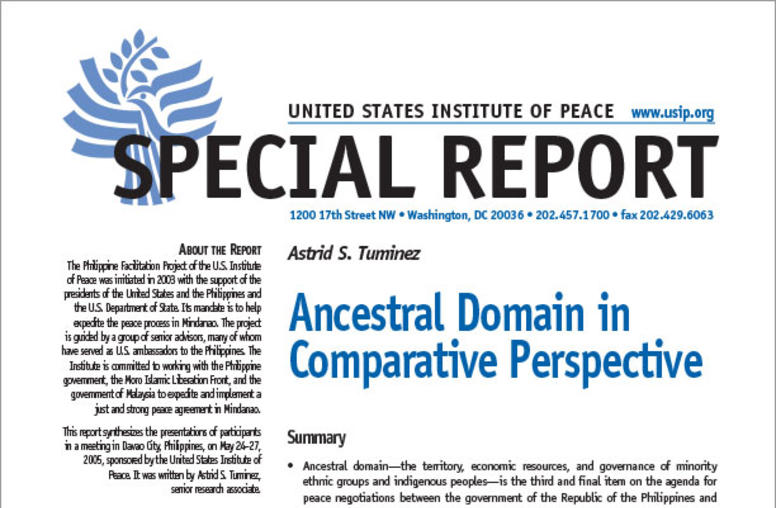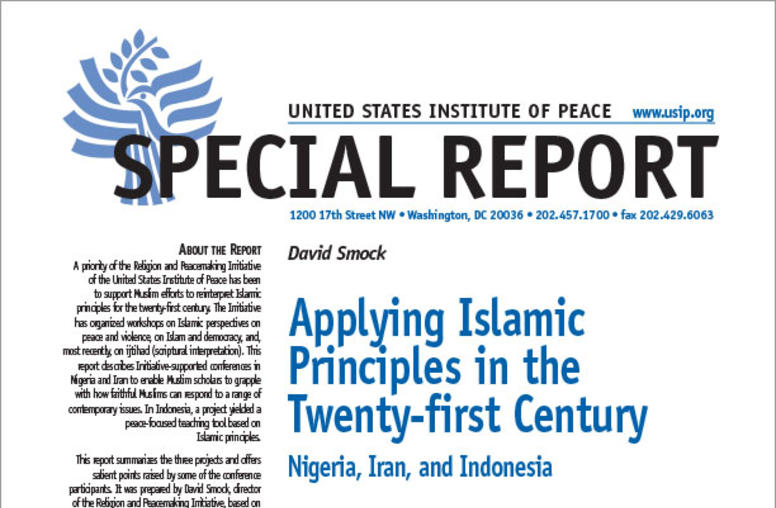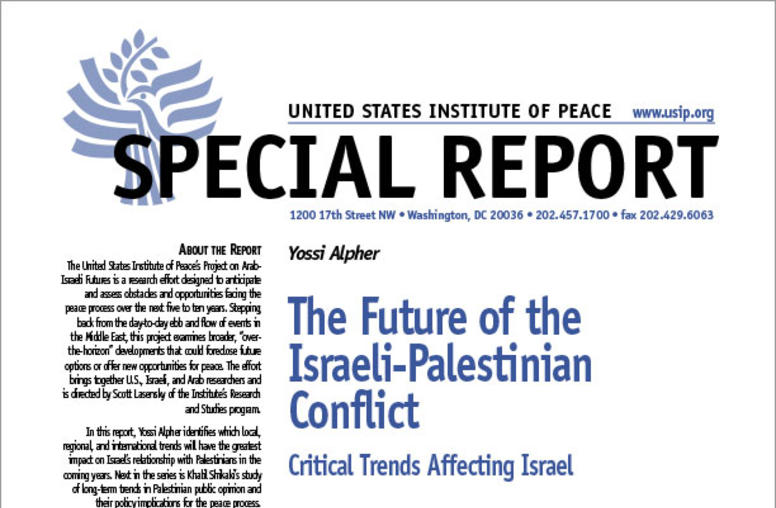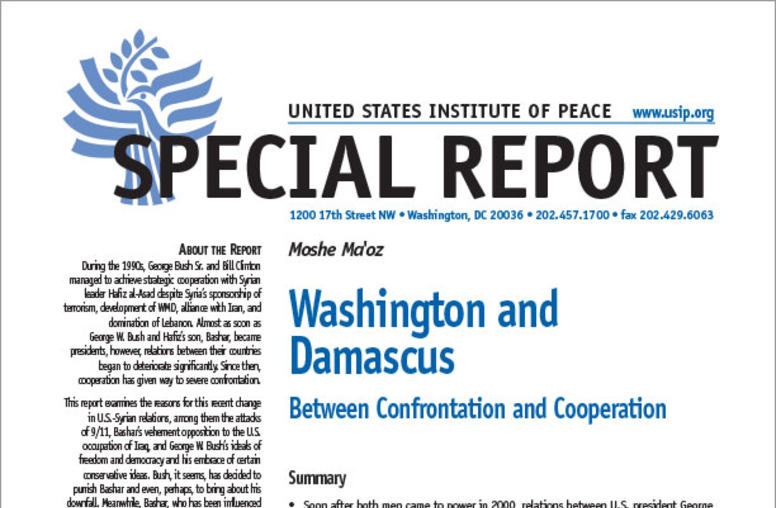Question And Answer
Publications
Articles, publications, books, tools and multimedia features from the U.S. Institute of Peace provide the latest news, analysis, research findings, practitioner guides and reports, all related to the conflict zones and issues that are at the center of the Institute’s work to prevent and reduce violent conflict.
Peace Agreements: Republic of Congo
Accords de cessation des hostilitiés en République du Congo in French (11-16-1999 - 02-14-2000) Posted by USIP Library on: March 21, 2002 Source Name: Office of the Resident Coordinator, United Nations, Republic of Congo Date e-mailed: PDF file e-mailed on November 5, 2001 The file contains two accords signed November 16, 1999 and December 29, 1999; composition of a follow-up committee; and four presidential decrees dated February 14, 2000.
Rethinking the War on Terror
USIPeace Briefing exploring the nature of Islamist militancy and how best to overcome it.

Ancestral Domain in Comparative Perspective
Summary Ancestral domain—the territory, economic resources, and governance of minority ethnic groups and indigenous peoples—is the third and final item on the agenda for peace negotiations between the government of the Republic of the Philippines and the Moro Islamic Liberation Front. The experiences of other minorities elsewhere in the world can be instructive in formulating a stable and peaceful accommodation that satisfies both parties.

Applying Islamic Principles in the Twenty-first Century: Nigeria, Iran, and Indonesia
This report summarizes the three projects and offers salient points raised by some of the conference participants. It was prepared by David Smock, director of the Religion and Peacemaking program, based on papers by Radwan Masmudi, Asna Husin, and Abdulaziz Sachedina.

The Future of the Israeli-Palestinian Conflict: Critical Trends Affecting Israel
In this report, Yossi Alpher identifies which local, regional, and international trends will have the greatest impact on Israel's relationship with Palestinians in the coming years. Next in the series is Khalil Shikaki's study of long-term trends in Palestinian public opinion and their policy implications for the peace process.

Washington and Damascus: Between Confrontation and Cooperation
Summary Soon after both men came to power in 2000, relations between U.S. president George Bush and Syria's president Bashar al-Asad began to deteriorate significantly. Since the Iraq war of 2003, Washington and Damascus have been on a collision course. Washington has resented the indirect assistance provided by Syria to Saddam's regime and to his loyalists, both before and after the U.S. occupation of Iraq.
Nepal: Rule of Law and Human Rights Challenges
This USIPeace Briefing analyzes the security situation in Nepal and the escalation of human rights abuses.
Arab Media: Tools of the Governments; Tools for the People?
In the aftermath of 9/11, a shocked U.S. government and public asked, "Why do they hate us?" bewildered that the so-called Arab street views them—us—with extreme antipathy. Since that day in September, an urgent desire to quench this seething regional hostility has seized the government, hoping to mitigate or at least deflect any future terrorist attacks.
Creating a Common Communications Culture: Interoperability in Crisis Management
No technologies have been more powerful in reshaping the post-Cold War international system than those of the information revolution. Over the past two decades, nation-states and subnational groups, international businesses, and multinational organizations have struggled to incorporate the dramatic possibilities for their work of satellite communications, the Internet, inexpensive telephone and cell phone services, fax machines, and global computer networks.